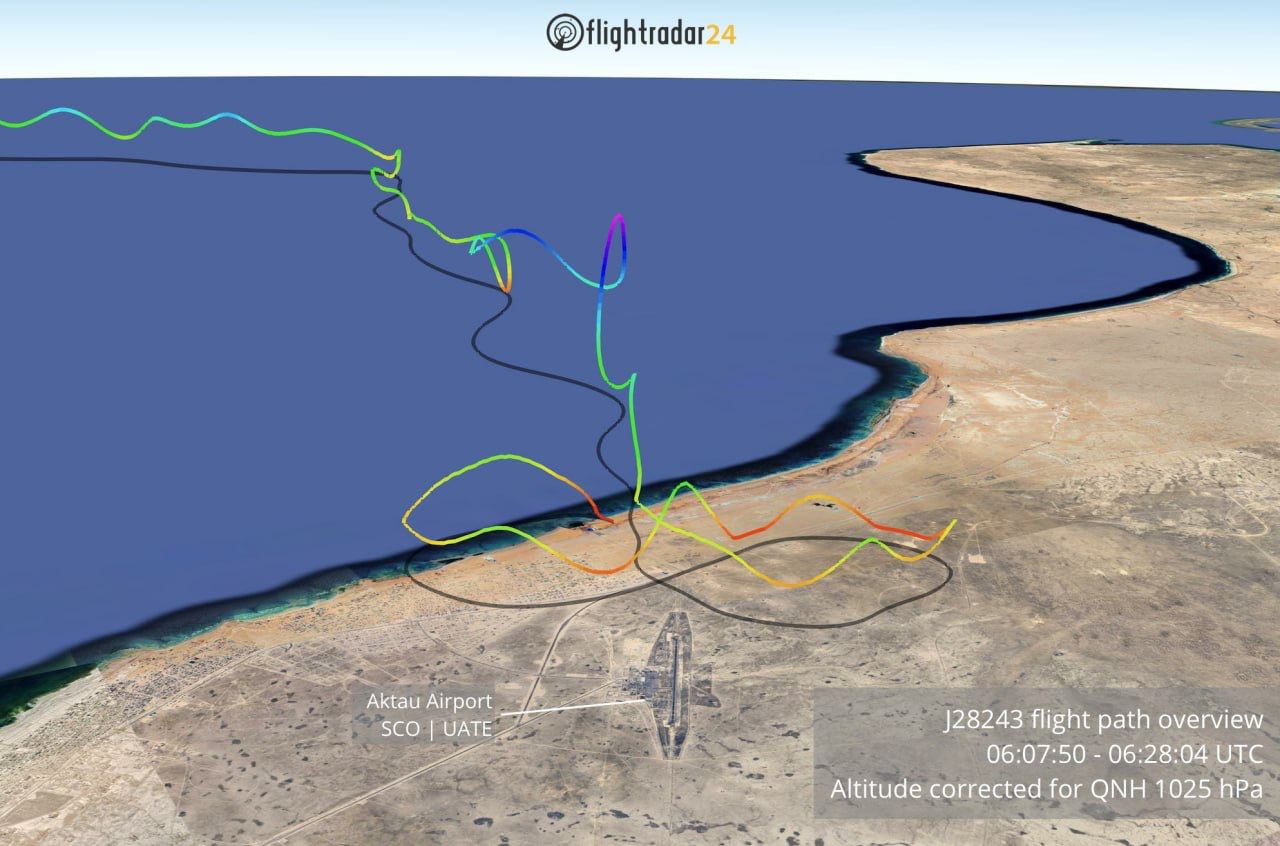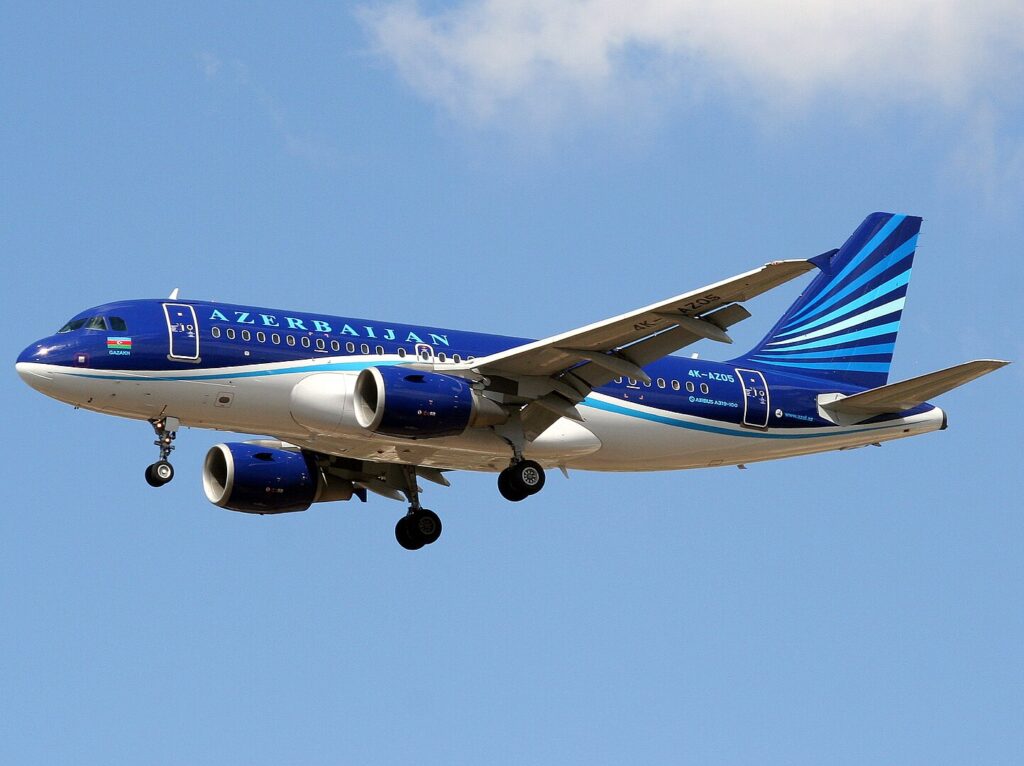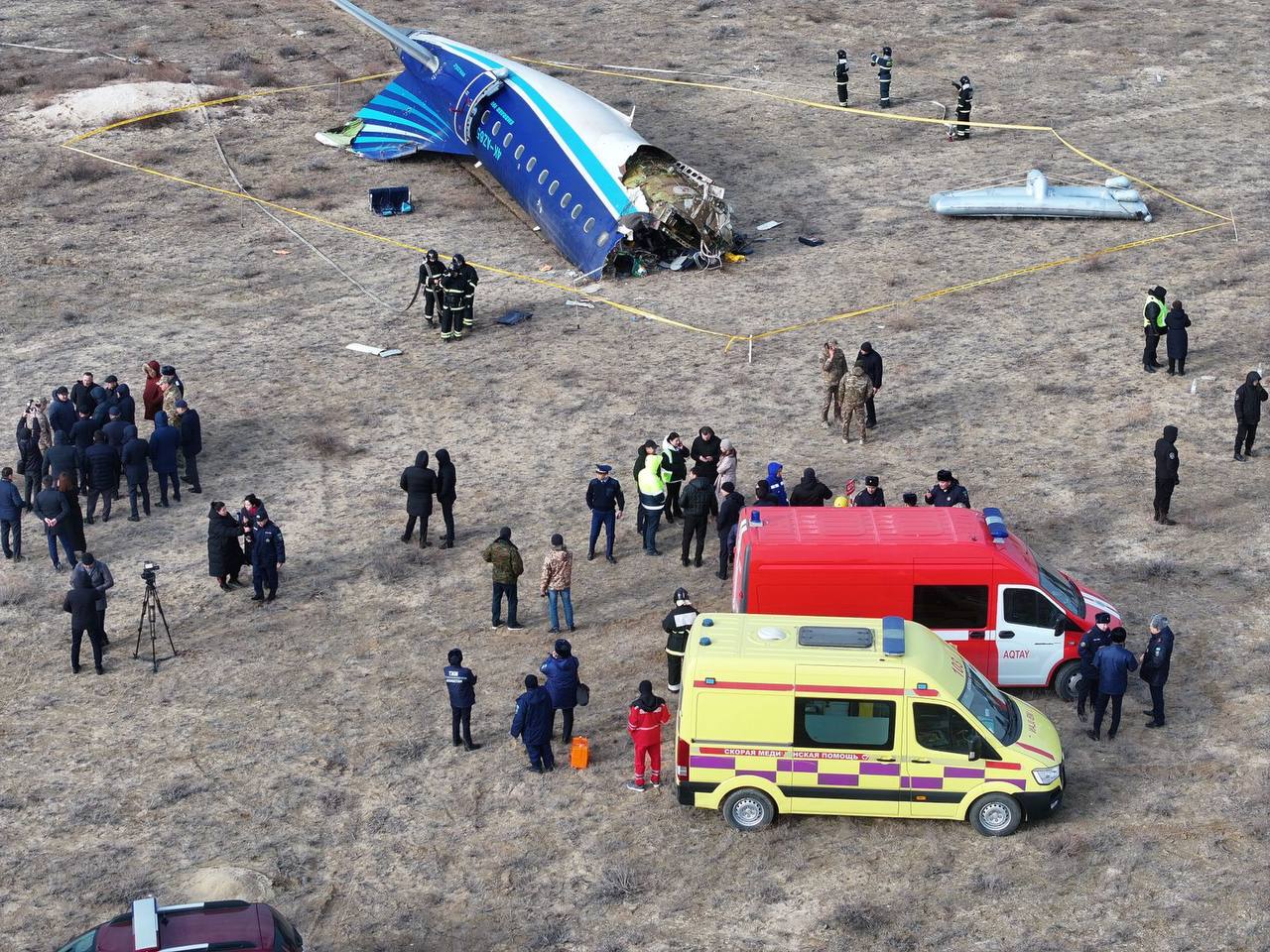Azerbaijan Airlines Flight 8432 crashed near Aktau, Kazakhstan, during an emergency landing attempt, claiming the lives of all 38 passengers and crew aboard.
Azerbaijani government sources confirmed to Euronews on Thursday that the crash was caused by a Russian surface-to-air missile. The missile reportedly fired from a Pantsir-S air defense system, struck the aircraft amid drone activity over Grozny, Chechnya. Shrapnel from the explosion severely damaged the plane mid-flight, fatally injuring passengers and crew.
Flight Denied Emergency Landing in Russia
Sources further alleged that Russian authorities denied the aircraft permission to land at any Russian airport, despite the pilots’ urgent requests. Instead, the damaged plane was directed across the Caspian Sea to Kazakhstan. During its journey, the aircraft’s GPS systems were reportedly jammed, complicating navigation and emergency procedures.

Missile Incident Amid Drone Operations
Russian officials have acknowledged intense air defense activity in Chechnya at the time, targeting Ukrainian drones near Grozny. Khamzat Kadyrov, head of Chechnya’s Security Council, confirmed a drone attack on the city but stated there were no ground casualties or damage.
If verified, this incident would mark the second known instance of Russian forces downing a commercial airliner, following the 2014 destruction of Malaysia Airlines Flight MH17 over eastern Ukraine. Unlike MH17, this tragedy involves Russian citizens and individuals from neighboring nations among the victims.
Regional and International Fallout
The crash has sparked outrage and raised urgent questions about aviation safety in conflict zones. Investigations are underway, with international agencies expected to scrutinize Russian military operations and airspace management.
Authorities in Azerbaijan have called for a thorough probe, while Kazakhstan and international aviation bodies have offered support. This tragic incident underscores the dangers of escalating conflicts spilling into civilian airspace.




